
|
Vol 74 |
Page 18 |
Privacy Policy | Editorial Policy | Profit Policy | Join the Association | List of Members | Contact us | Index | Links
Back Go to page: 1 2 3 4 5 6 7 8 9 10 11 12 13 14 15 16 17 18 19 20 Forward
DVA Issues.
Contents:
Commemoration in an Australian war Cemetery.
Eligibility for inclusion in an Aust War Cemetery.
Expansion of face-to-face services.
Face to face services - comment.
Royal Commission into Suicide.
Official Commemoration in Australia’s War Graves.
You could be eligible for an official Commemorative Plaque in one of Australia’s War Graves.
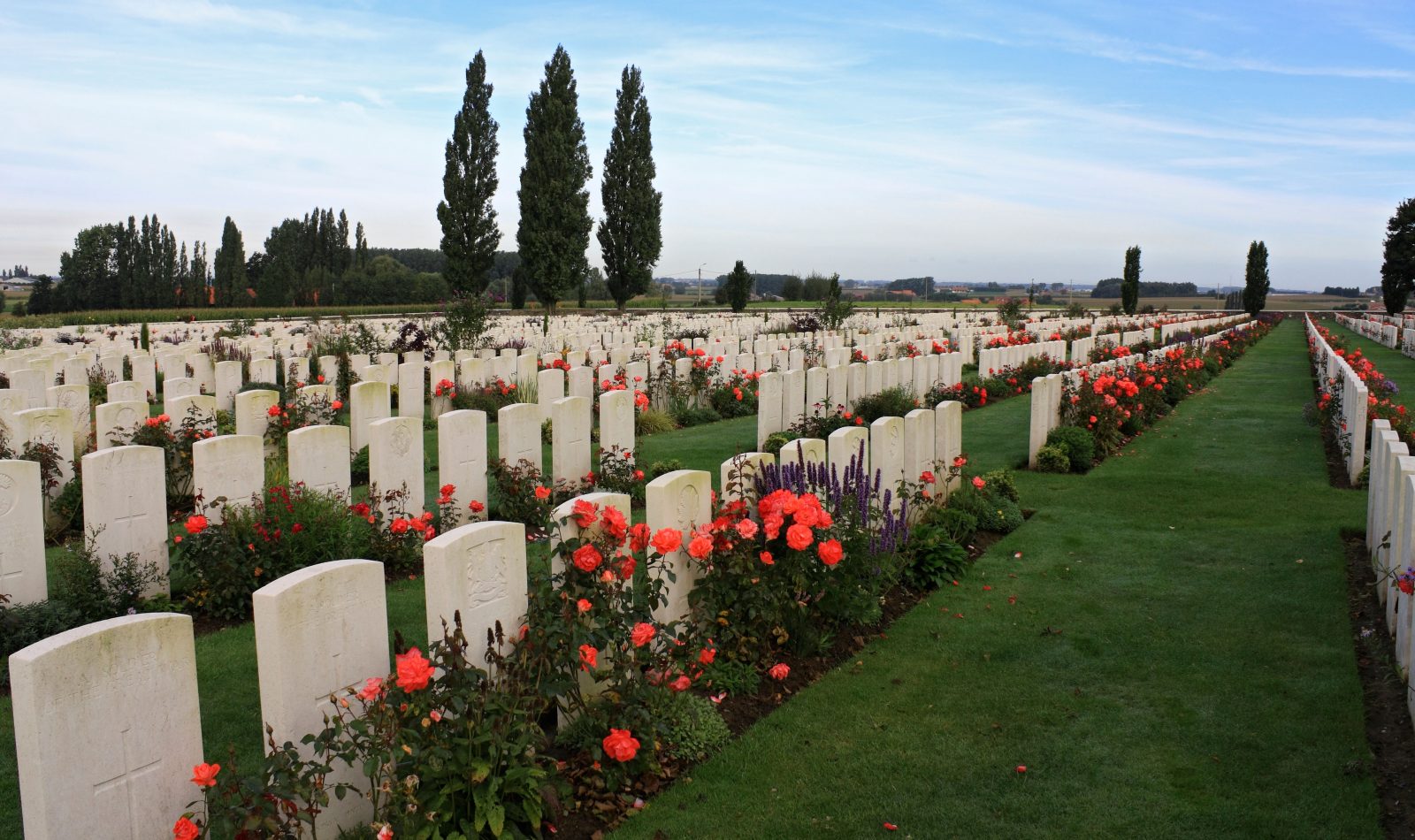
Australian servicemen and women who have died in conflict are buried in war graves (as above) which are situated in 83 different countries.
Service men and women who have died sometime after the conflict and whose death can be attributed to the conflict are eligible for an official commemoration in the form of a memorial plaque.
Australia’s War Graves are administered by the Office of Australian War Graves (OAWG) which is part of the department of Veterans’ Affairs (DVA). Initially a stand-alone agency, in 1980 it became part of the DVA. It has three distinct roles:
-
To maintain war cemeteries and individual war graves within Australia and the region, as agents of the Commonwealth War Graves Commission.
-
To officially commemorate eligible veterans who have died post-war and whose deaths are accepted as being caused by war service; and
-
To provide and maintain national memorials overseas.
The Government is committed to remembering the service of eligible veterans through the provision of official commemoration.
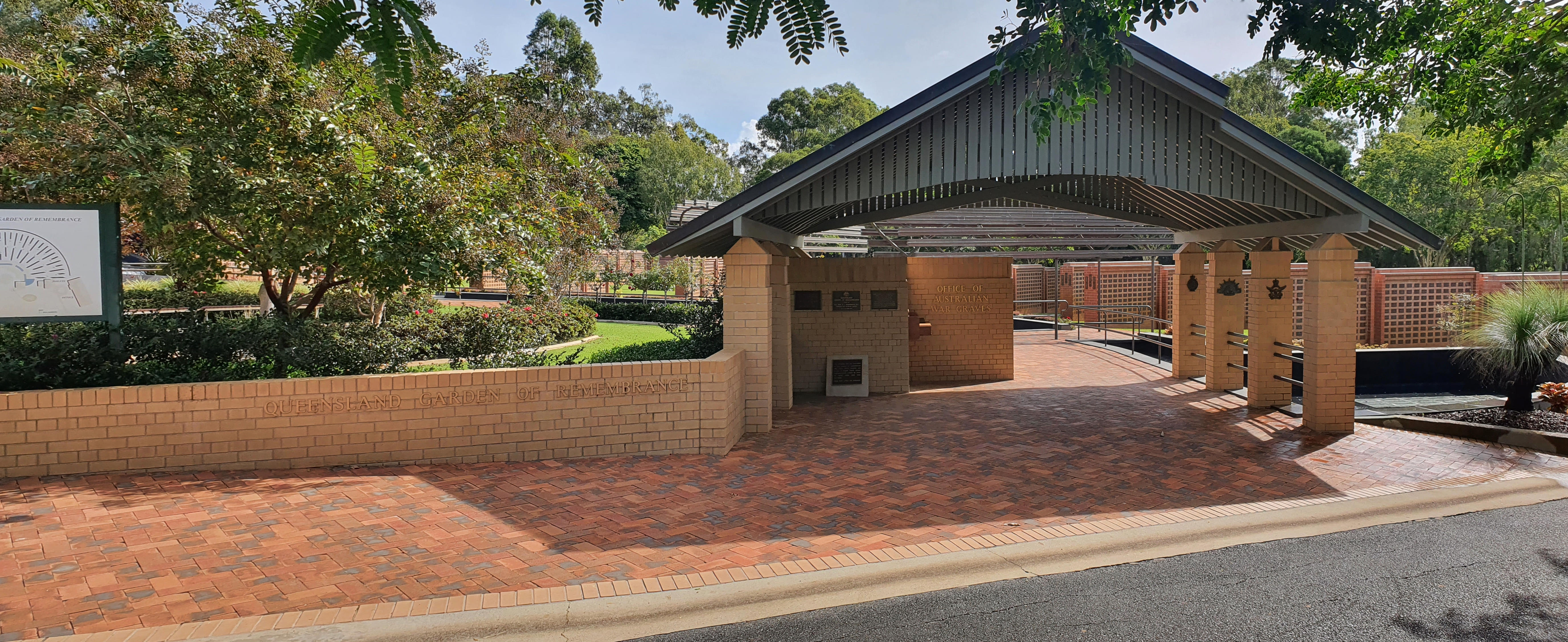
Official commemoration consists of the provision of an official memorial at either the site of interment or by placement of a plaque only in an official OAWG Garden of Remembrance. Not both. The memorial is provided and maintained in perpetuity by the OAWG for veterans of the Australian armed forces who die in war or conflict, or for eligible veterans who die after a war or conflict of causes related to their service in that war or conflict. In this context war or conflict means service in a World War or Operational, Peacekeeping, 'Warlike' or 'Non-Warlike' service after World War II.
Who is eligible?
The following groups of Australian veterans are eligible for official commemoration:
-
A member of the Australian Defence Force who died whilst on War Service, Operational Service, Peacekeeping Service or 'Warlike' or 'Non-Warlike' Service
-
A veteran whose death has been accepted by the Repatriation Commission or the Military Rehabilitation and Compensation Commission as being due to service in war or conflict
-
A veteran in receipt of a Special Rate (T&PI) Pension, an Extreme Disablement Adjustment (EDA), a Temporary Special Rate Pension (TSR or T&TI) or an Intermediate Rate Pension (INT) at the time of death and where the veteran has seen service in a war or conflict
-
A veteran who is a multiple amputee as defined in Section 27.1 of the Veterans' Entitlements Act 1986 (VEA) on maximum pension rate where service in a war or conflict has been proven.
-
An ex-prisoner of war; or
-
A Victoria Cross recipient.
Upon the death of a veteran, DVA will notify OAWG about their eligibility. Once this information has been provided, OAWG will send the nominated contact information and an application form for official commemoration .
How do I find out about eligibility?
Eligibility is determined by the Department of Veterans' Affairs and not by the OAWG. The section within each DVA office that processes bereavement payments notifies the OAWG of a veteran's eligibility. If a veteran is not automatically eligible, but you believe that the death is attributable to their war service, an application can be made by writing to the Deputy Commissioner, DVA, at GPO Box 9998 Brisbane QLD 4001 or email primary.claims@dva.gov.au, requesting that the death be investigated as war related. Your request should include a death certificate and service record, such as a discharge certificate or statement of service. If the application is successful, the veteran will then become eligible for official commemoration.
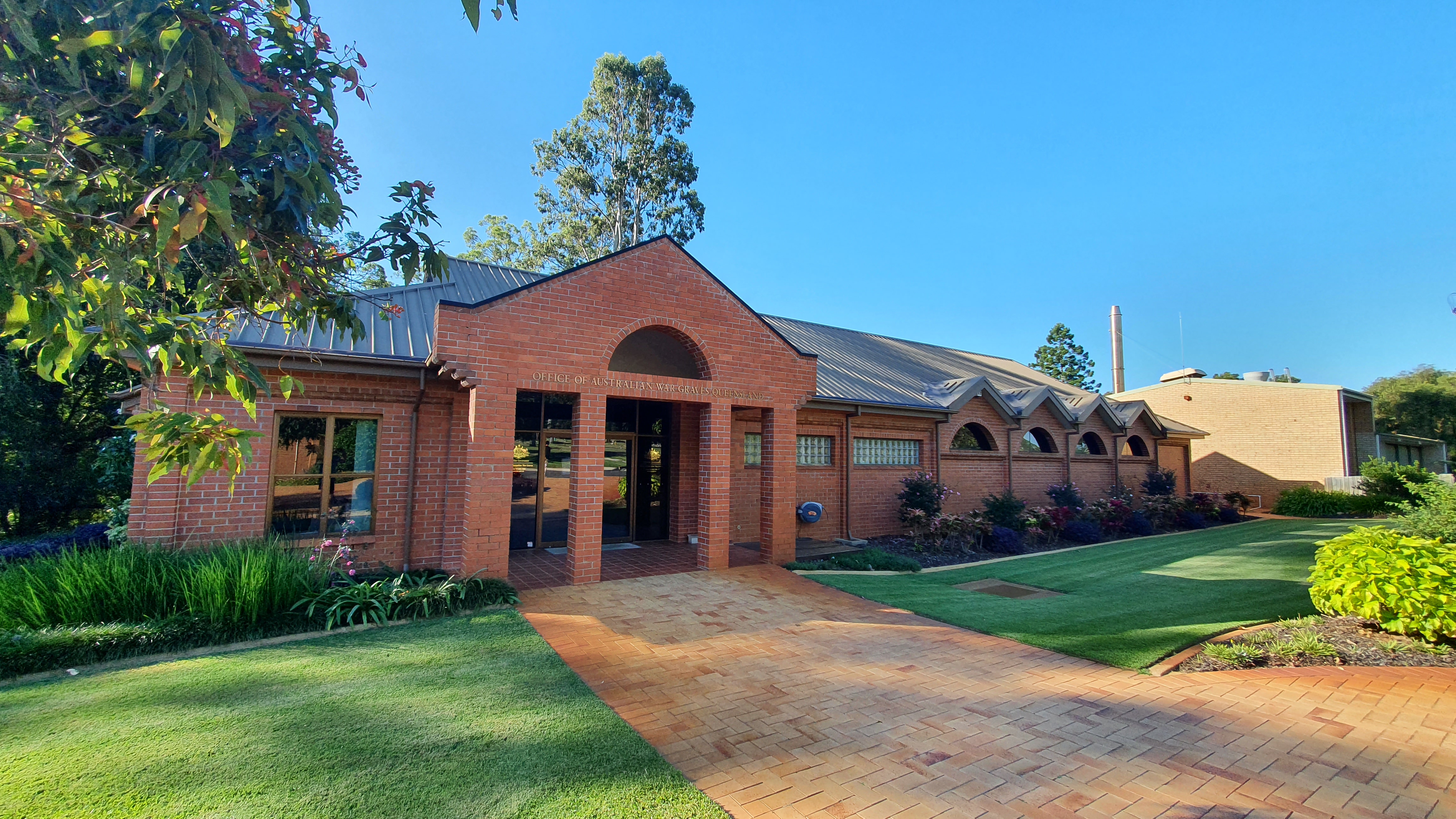
What about ex-service personnel who are not eligible?
All veterans who served in the Royal Australian Navy, the Australian Army or the Royal Australian Air Force are entitled to have their Service emblem/badge inscribed on their private memorial. Veterans who served in the Merchant Navy are entitled to inscribe a Merchant Navy badge, however, for copyright reasons, permission to inscribe a badge must first be obtained from the Office of Australian War Graves (OAWG). Section 83 of the Defence Act 1903 (Cth) delegates authority to the Director of War Graves to approve the use of a Service emblem on privately erected memorials for individuals. While this is not an official commemoration, it does allow for all those who have served in the Australian Defence Forces to recognise their service through the incorporation of a relevant service badge/insignia on their private memorial.
A permission letter authorising the use of a service badge/insignia for veterans of the Second World War, Korean War and Vietnam War can be downloaded from the following DVA Nominal Rolls website - https://nominal-rolls.dva.gov.au/
Requests for permission for use of the service badge for veterans who served in conflicts other than those listed above should be directed to wargraves@dva.gov.au You should include a document that provides proof of service with your request.
Written requests for permission to use Australian badges or emblems other than those of the Navy, Army and Air Force, for example the badge of a particular Corps such as the Artillery, in any publication (including on a memorial) should be directed to the Department of Defence:
Defence Community Organisation (DCO)
DGPERS-A
R8-9-026
Russell Offices
CANBERRA ACT 2600
Permission to use emblems of foreign services should be sought from the relevant Embassy or High Commission.
Upon receipt of the letter of permission, it should be given to whoever is arranging the private memorial. All costs and arrangements associated with the private plaque/memorials are the responsibility of the next-of-kin or executor.
How is the official memorial obtained?
DVA must be notified when a veteran dies. If the veteran is eligible for a post-war official commemoration, DVA will contact OAWG. DVA will also contact the Office if, after a successful claim, the death of the veteran is accepted as being war related.
The OAWG will send a form to the next of kin asking which type of memorial they would like. The OAWG will then arrange for the memorial to be placed.
What types of memorials are available?
The OAWG provides standard memorials in a:
-
Cemetery or lawn cemetery.
-
Crematorium.
-
Office of Australian War Graves Garden of Remembrance.
In order to ensure that all veterans are commemorated equally and uniformly, all memorials provided by the Office:
-
Are uniform in design for each type of memorial and to the area of the particular cemetery where the memorial is to be placed.
-
Remain the property of the OAWG.
-
May not be altered or amended in any way.
Official Memorial in a cemetery.
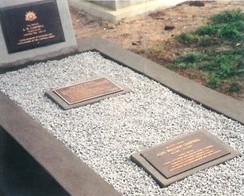
In a general cemetery where the grave memorial must be a full monument as determined by the cemetery, OAWG will provide and maintain grave kerbing, infill and a headstone with a bronze plaque as illustrated. These memorials are constructed of concrete with a rendered finish.
The plaque may include an optional religious emblem and personal inscription.
Where a general cemetery will not permit the placement of kerbing, OAWG will provide a headstone and plaque in line with the individual cemetery's regulations. The OAWG may only provide a standard memorial. It should be noted that the grave must be completely bare of all monumental work such as kerbing, plaques, and headstones before the Office can provide an official memorial.
In a lawn cemetery, depending on cemetery regulations, a bronze plaque can usually be provided. The OAWG provides a single plaque only for the eligible veteran.
Bronze plaques for cemetery memorials are inscribed with the Service emblem, initials and surname, Service details, date of death, age of the veteran and an optional personal message and/or religious emblem.
Second Burials.
The grave of a veteran in a civil cemetery may be re-opened for the further burials, for example, widow, family member. Where a full grave cover has been provided, the OAWG will restore the grave to its original condition and the family may then place a plaque for the additional burial on the infill area, in the centre or towards the foot of the grave.
The cemetery is responsible for the restoration of the grave in lawn areas. An additional plaque may be placed if the lawn cemetery authorities permit. The veteran's plaque cannot be moved or changed in any way.
Memorial in a crematorium.
The OAWG will arrange for the placement of the ashes in a wall niche sealed with the official bronze plaque, or in a garden bed. If the ashes have been scattered or are to be retained by the family, an OAWG Garden of Remembrance memorial only is provided. Crematorium plaques do not contain a personal message or religious emblem.
Memorial in a Garden of Remembrance.
A Garden of Remembrance memorial is provided as an alternative commemoration when the OAWG is either unable or not requested to provide official commemoration at the place of burial or cremation. The Garden of Remembrance memorial is a bronze plaque placed on a wall in a garden setting. Garden of Remembrance plaques do not contain a personal message or religious emblem.
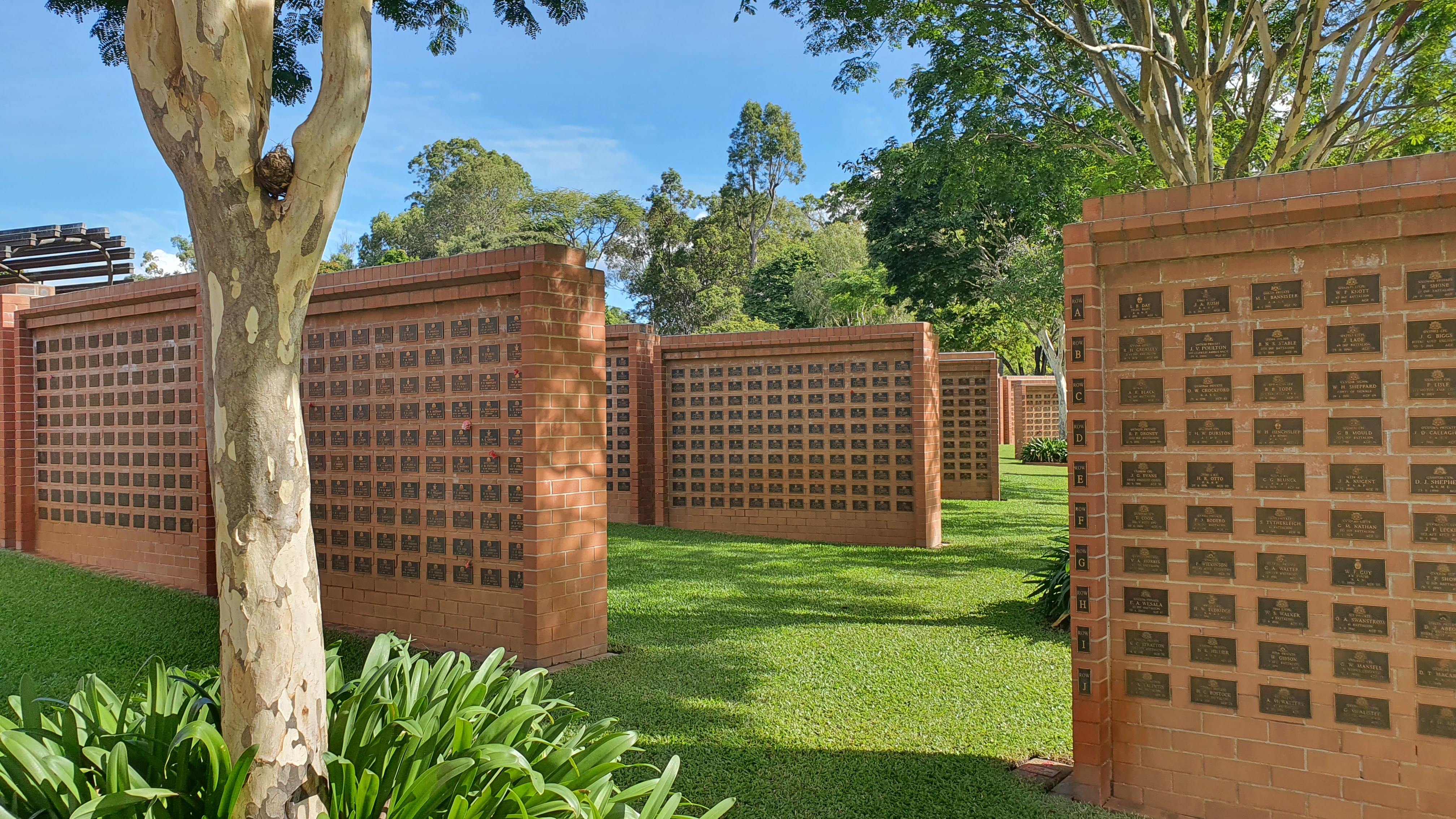
Gardens of Remembrance have been established in each State and Territory capital city, Townsville and Launceston. Many are located adjacent to a major war cemetery. For those who live some distance from a Garden of Remembrance, the OAWG will provide a photograph of the commemoration, upon request, free of charge.
A plaque in a Garden of Remembrance is an option, it is not in addition to an official memorial in a cemetery or crematorium, the OAWG will only provide one option. Should a veteran choose to have a wall plaque in a Garden of Remembrance, he/she can still have a bronze plaque on a grave site but it will be at his or her cost.
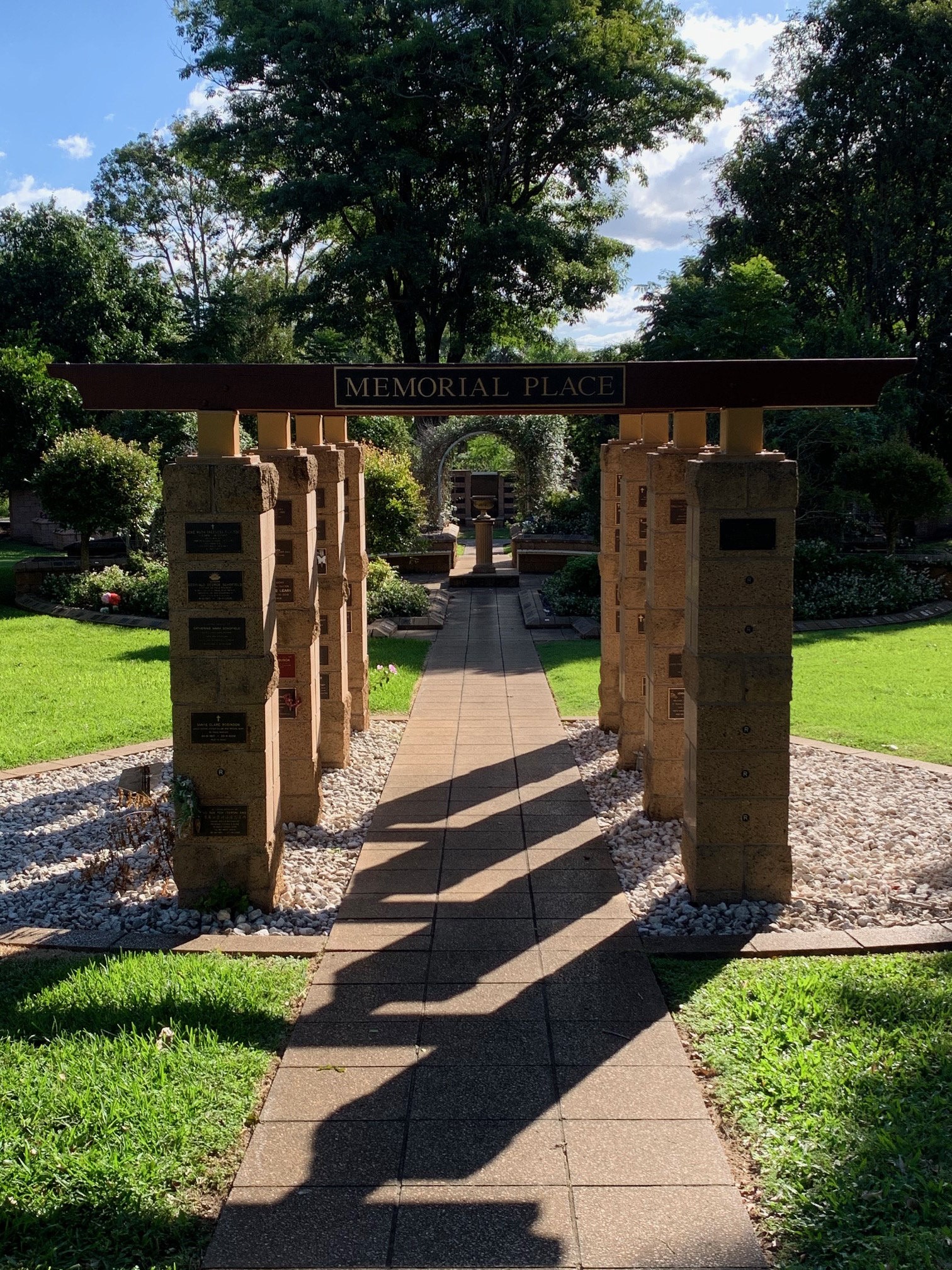
Tenure
In some States, tenure (lease of an interment site for a fixed period) may apply in cemeteries and crematoriums. It is the responsibility of the family or estate to renew the tenure of these sites when it becomes due. If the tenure is not renewed, and the site is resumed, the official commemoration will be transferred to an OAWG Garden of Remembrance.
Can an official memorial be placed upon a pre-purchased a plot?
Yes, but the plot must be completely bare of any structure including plaque, headstones or edging. If you would like to use a pre-purchased plot, you can send OAWG a photo, so they can check that it is possible to put in place a commemoration.
It is not possible for OAWG to place an official commemoration on an existing family grave.
How long will it take to arrange a memorial?
The length of time to arrange a memorial will depend on the type of memorial requested and the location in which the memorial is to be placed. On average, memorials are completed within the following timeframes, from the date the completed form is received by the OAWG:
| Type of Memorial | Time Taken | |||
| Full grave cover | six months | |||
| Lawn Cemetery/Crematorium | four months | |||
| Garden of Remembrance | three months |
Full grave covers may take longer due to individual cemetery regulations or the remote location of the cemetery.
Who maintains official memorials?
The OAWG maintains official memorials and have depots located in each State capital city, Townsville, Adelaide River near Darwin and at Launceston, Tasmania. In addition to maintaining post-war commemorations, the OAWG also maintains, on behalf of the Commonwealth War Graves Commission, 72 war cemeteries in Australia as well as three war cemeteries in Papua New Guinea. It also maintains individual war graves in civil cemeteries.
Maintenance of official memorials is undertaken as often as resources permit but at least once a year except for remote areas which are visited as frequently as possible.
Contact details.
The OAWG is available during normal office hours (9.00am to 5.00pm AEST/AEDT) to assist and advise on any matters affecting the commemoration of a veteran. Address all enquiries (from all over Australia) to:
Office of Australian War Graves
GPO Box 9998
Brisbane Qld 4001
Phone 1800 555 254
KM Smith
If you live in the greater Brisbane area, including Ipswich, at a time of bereavement you need advice from a firm that is local, is one you can trust and is one that has a proven record over nearly 140 years. One such firm is KM Smith. (Click the pic below for details)
Thinking straight at the time of the loss of a loved one is very difficult, emotions overcome rational thinking and at those times you need someone to lean on. KM Smith have been helping people get through this terrible time for many many years and their staff are caring, understanding of your grief and sensitive to your many wishes.
They have produced an informative booklet that you should download now and keep handy for when that terrible but inevitable time arrives. You don’t have to live in Brisbane or have an association with KM Smith to get the book, it is just very useful and very informative and you would be very well advised to have it.
You can get a copy HERE.
Royal Commission into veteran suicide will go ahead.
On the 19th April, 2021, Prime Minister Scott Morrison announced a Royal Commission into veteran suicide will go ahead.
The PM said “We will take the step of recommending to the Governor-General the establishment of a Royal Commission, following a period of consultation on draft Terms of Reference, with the relevant community and State and territory governments. The Royal Commission will complement the government’s existing initiative to establish a permanent National Commission to proactively deal with future issues, including taking on recommendations of a Royal Commission.”
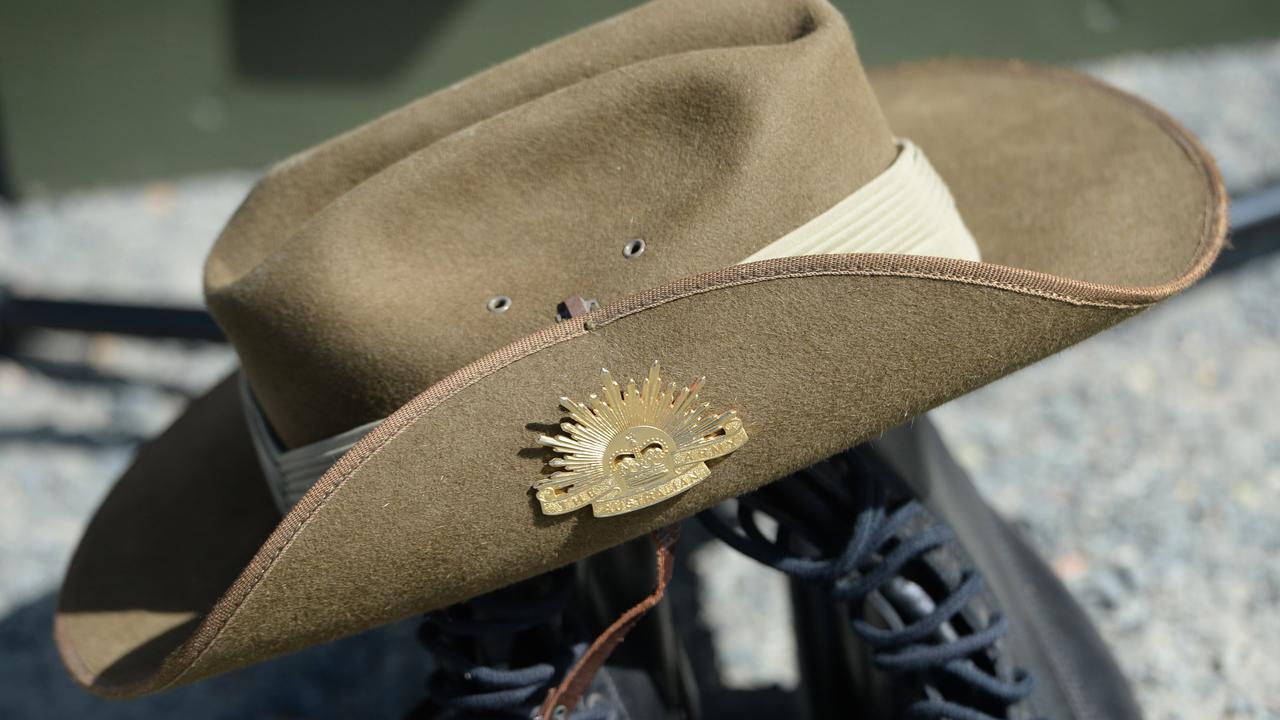
A motion calling on the Morrison Government to establish a Royal Commission into the rate of suicide among current and former serving Australian Defence Force personnel passed unopposed through both houses of parliament on 22 March. This follows more than two years of passionate and dedicated campaigning by Julie-Ann Finney, mother of Petty Officer Dave Finney who lost his battle with ‘the black dog’ in February 2019.
Prime Minister Morrison, whose government very publicly resisted the campaign for two years, said “we have always recognised that the rate of suicide of Australian Defence Force members and veterans is unacceptably high. “In recognising the sacrifices made by our serving and former members and their families on behalf of the nation, we owe it to members, veterans and their families to continue to take action,”
Minister for Veterans’ Affairs Darren Chester has been tasked to lead a public consultation process on the draft Terms of Reference and the Prime Minister will write to First Ministers inviting their contributions to the draft Terms of Reference with the view of a joint Commonwealth-State Royal Commission. Minister Chester said the Royal Commission was another step in efforts to build confidence, trust and hope for current and future veterans and their families that they would be supported. “This will provide an opportunity for us all to reset, further increase our understanding of this issue, and unite the parliament, the exservice community, and the families who have been affected by suicide,” Minister Chester said.
“As a nation we take great pride in the men and women who have served our nation in uniform and, as a government, we have committed to help them with any mental or physical issues that are a result of that service.”
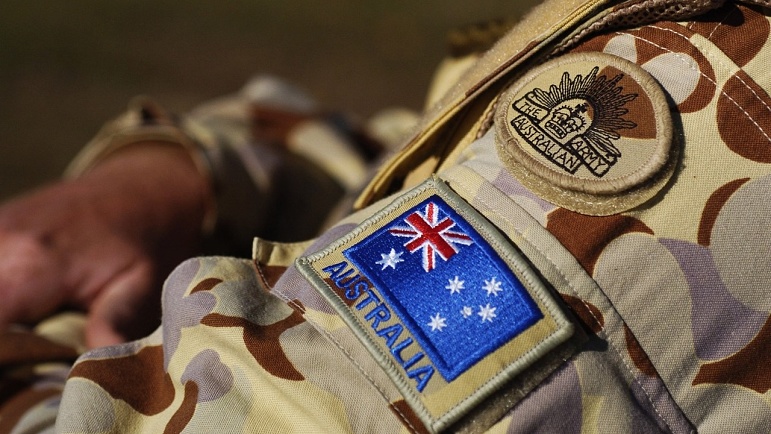
Prime Minister Morrison said the Royal Commission would not defer, delay or limit, in any way, any proposed or announced policy, legislation or regulation currently being implemented. “The government intends that the Royal Commission and the National Commissioner for Defence and Veteran Suicide Prevention will be established together and operate in a complementary way to achieve long-term change. “The Royal Commission will look at past deaths by suicide – including suspected suicides and lived experience of suicide risks –from a systemic point of view, while the National Commissioner will have a forward-looking role, including overseeing the implementation of the Royal Commission’s recommendations.
“The National Commissioner Bill currently before the parliament will be amended to ensure their work complements the work of the Royal Commission and examines deaths by suicide in the defence and veteran community that occur after the Royal Commission has handed down their final report.” He said that, given the complex issues for consideration, and the importance of hearing from Australian Defence Force members, veterans and their families, the government envisaged three Commissioners will be needed to lead the inquiry, with consultation underway to appoint suitable candidates. The Attorney-General’s Department will provide administrative
support to the Royal Commission.
How typical, the Government fights tooth and nail not to have a Royal Commission but when forced to have one it does a 180 and thumps its chest saying what great fellows we are – we’re going to have this commission and find out why ADF personnel are suiciding at an alarming rate. What a bunch of hypocrites. What about fixing the DFRDB fiasco you created and reinstate the TPI compensation to its rightful level too. tb.
Service Pensions
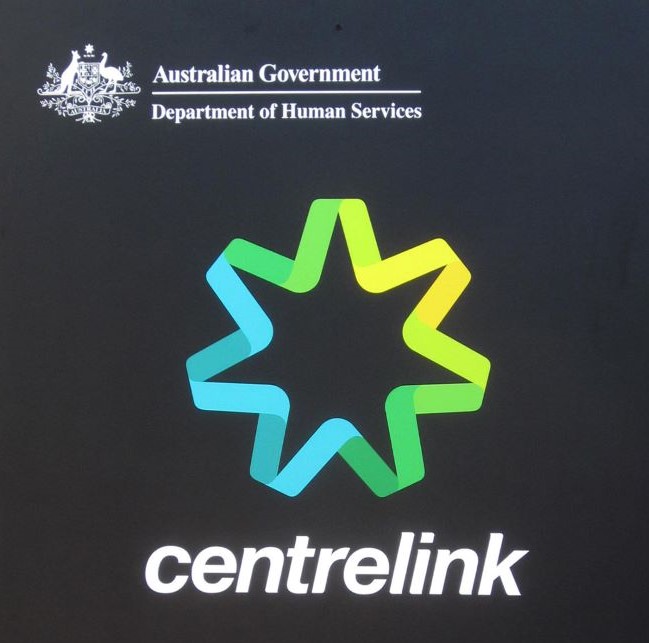
A service pension provides a regular income for people with limited means. A service pension can be paid to veterans on the grounds of age or invalidity and to eligible partners, widows and widowers. It is subject to an income and assets test. These pensions are paid earlier than the age pension paid by Centrelink and is in recognition of the intangible effects of war that may result in premature ageing of the veteran and/or loss of earning power. Invalidity service pension may be granted at any age up to the age pension age.
The service pension is paid fortnightly, based on daily entitlements and is adjusted twice-yearly, in March and September in line with movements in the cost of living and/or average wages.
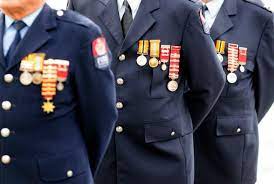
Who is eligible?
A service pension is payable to eligible veterans, their partners and widows and widowers. For service pension purposes, a veteran is a person who has qualifying service. Eligible veterans include:
-
Australian Veterans;
-
Commonwealth Veterans;
-
Allied Veterans;
-
Australian Mariners;
-
Allied Mariners; and
-
Some Members, Former Members, Declared Members and former Declared Members covered under the Military Rehabilitation and Compensation Act 2004 (MRCA).
You are eligible for the service pension if you are a veteran who:
-
has qualifying service — generally, that is, has served in operations against the enemy while in danger from hostile forces of the enemy; and
-
meets the residency requirements — that is, is a resident of Australia and is present in Australia at the time of lodging the claim for service pension (additionally, Commonwealth Veterans and allied Veterans and Mariners must have been an Australian resident for at least 10 years, although there can be some exemptions).
and you are either:
-
of service pension age; or
-
permanently incapacitated for work.
A service pension may not be payable because of your income and assets, even if you are eligible.
Eligibility for current partners.
Partner service pension may be paid to partners who are either: legally married to and living with a veteran living in a de facto relationship with a veteran and in both cases above, the veteran is receiving or is eligible to receive the service pension.
Partners are eligible if they are any of the following:
-
they are qualifying age
-
they have dependent children
-
the veteran receives the special rate (Totally and Permanently Incapacitated) disability pension
-
the veteran is receiving, or eligible to receive, a Special Rate Disability Pension under the MRCA
-
they are 50 years of age or over and the veteran receives an above general rate (AGR) disability pension
For detailed information regarding qualifying age and eligibility for partner service pension, refer to Partner Service Pension.
Eligibility for former partners.
Partner service pension may be paid to former partners who are separated from a veteran. Former partners are eligible if they meet the age or exemption criteria and the veteran is receiving, or is eligible to receive, the service pension.
Partner service pension can only be paid to a separated partner for 12 months from the date of separation unless:
-
they have reached social security age pension age before they had been separated for 12 months; or
-
special domestic circumstances apply.
Special domestic circumstances are where the veteran has a mental health condition recognised by DVA and there was an unsafe or abusive domestic environment prior to separation.
A former partner is not eligible to receive partner service pension if they enter into a de facto relationship with, or marry another person.
Eligibility for widows and widowers
If the widow, widower or former partner of a veteran was receiving partner service pension immediately before the veteran's death, he or she continues to be eligible for that pension. There are a number of other circumstances in which a widow or widower of a veteran who has rendered qualifying service is eligible for partner service pension. For more information refer to Partner Service Pension.
What is pension age?
The pension age for a male or female veteran who has qualifying service and the qualifying age for a male or female partner is 60 years.
| *Note: | From 1 July 2017 age pension age (non-veteran) will increase by six months every two years until it reaches 67 on 1 July 2023. This will not affect people born before 1 July 1952. |
Service pension and age pension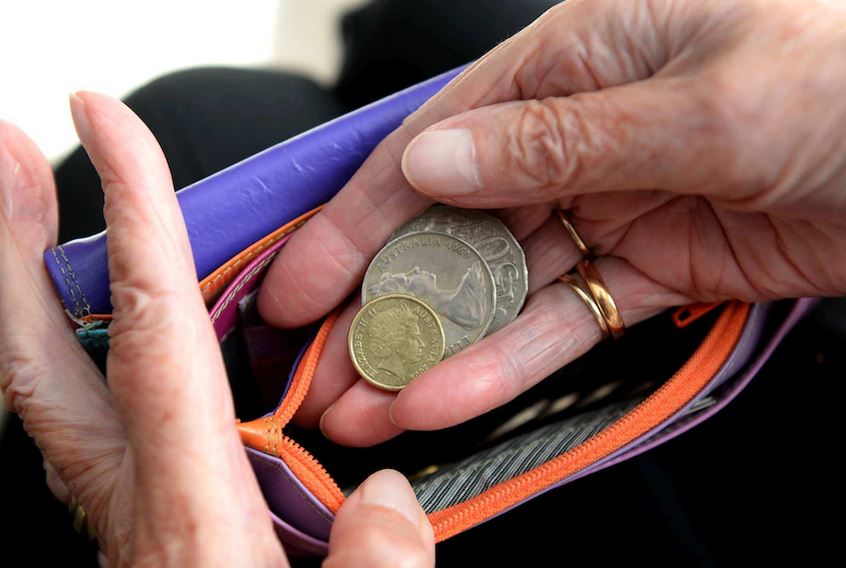
You cannot receive a service pension from DVA as well as an age pension or any other social security pension or benefit (except Family Tax Benefit).
How do I claim service pension?
If you are planning to claim a service pension, you should telephone DVA and advise of your intention to claim so that your pension may be granted from the earliest date possible. If you telephone DVA, enquiry staff will be able to assist you by:
-
Recording your intent to claim;
-
Providing information to assist you to create your own personalised MyAccount for managing all of your dealings with DVA, including lodging claims;
-
Providing guidance on lodging an online claim; or
-
Tailoring a hard copy claim pack to be posted to you for completion; or
-
Arranging an appointment at a local Veterans' Information Service or Veterans' Access Network office where an officer can assist you to lodge your claim.
For more information on claiming service pension, please refer to the How to Claim Service Pension.
When will my pension be payable from?
If you are planning to claim a service pension, you should telephone DVA and advise of your intention to claim. If you are eligible for service pension at the time of your phone call, it may be possible to backdate your pension to this date. If your claim is not received within 3 months of this telephone call, the earliest date of grant is the date of lodgement. If you decide to make a claim online and have not previously advised DVA of your intention to claim, your intention to claim date will be the date that you commenced your online application.
Rates of service pension
There are two different rates of service pension:
-
a singles rate — payable to single pensioners, widows, widowers and former partners of veterans.
-
a couples rate — payable to each member of a couple who are living together.
If only one member of a couple receives a service pension, the couples rate of pension is paid. If a couple separate because of ill-health or during a period of respite care, each member of the couple may be paid at the singles rate, however the couples rate of ordinary income free area and assets value limit applies. If you are a veteran and you also receive a war widow(er)’s pension, the maximum amount of service pension you are entitled to is limited to $286.80 per fortnight.
Income and assets tests.
The amount of service pension you receive depends on your income and assets. The pension is calculated under two separate tests, the income test and the assets test. The test paying the lower rate of pension is the one that is applied. You can have a certain amount of income and assets, and still receive the maximum rate of pension. These limits are known as the ordinary income free area and the assets value limit.
There are two ordinary income free areas:
-
the singles income free area; and
-
the couples income free area.
There are four assets value limits:
-
singles who own their home;
-
singles who do not own their home;
-
couples who own their home; and
-
couples who do not own their home.
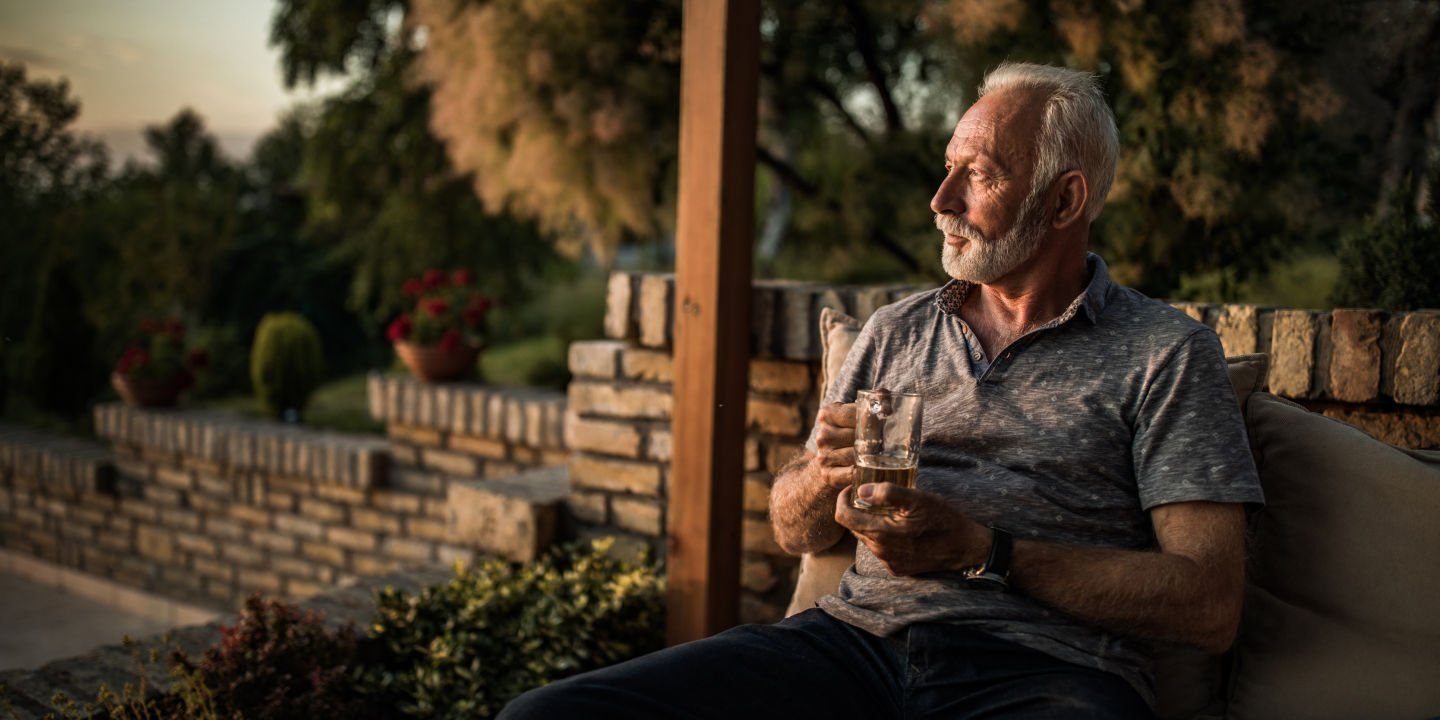
Income or assets above the ordinary income free area or assets value limit reduces the amount of service pension payable. The service pension ceases to be paid when income or assets exceed certain cut-off limits. If you are a member of a couple, you are both treated as if you each receive half your combined income and you each own half your combined assets, regardless of who actually receives the income or owns the assets. Therefore, you are both paid the same rate of pension.
| *Note: | For pension purposes, superannuation products are not counted as income producing or an asset until the person who owns the superannuation reaches pension age or makes a withdrawal from the investment. For more information about the assessment of superannuation, refer to Managed Investments. |
If you are considered to be blind, the service pension is paid free of the income and assets tests and at the maximum rate. For more information refer to Financial help if you are blind.
What is the work bonus?
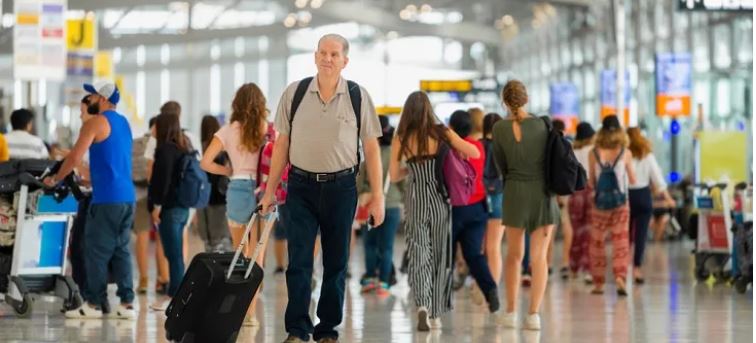
The work bonus is an incentive to encourage older pensioners who are able, to continue working. Under the work bonus rules, the first $300 of work bonus income earned per fortnight is excluded from the income test.
Example: A work bonus eligible pensioner receives wages of $600 per fortnight. When their income is calculated for the income test, the first $300 is disregarded, so the assessable wages income is $300.
Additionally a work bonus bank has been introduced to enable eligible pensioners to accrue any unused amounts of the $300 fortnightly exemption to a maximum of $7,800. Any credit in this ‘bank’ can then be used to offset employment income that would otherwise be assessable in the future. To be eligible you must be over qualifying age/pension age and working as an employee.
Giving away assets or income
You can give away assets up to:
-
$10,000 each financial year; but no more than
-
$30,000 over a rolling five-year period.
These limits apply to singles and couples. If you give away more than either limit, the excess amount will be counted as an asset under the assets test and will be deemed to be earning income under the income test for 5 years from when the assets were given away. If you give away assets above the limits in the 5 years before your service pension is granted, the excess amount will be counted as an asset and will be deemed to be earning income for up to 5 years from when the assets were given away.
These rules apply when:
-
you give away money or property; or
-
you transfer money or property to, for example, a family member.
However, these rules do not apply to the sale or use of assets to meet ordinary or extraordinary expenses such as ongoing living expenses, unusual medical expenses, a holiday, home improvements or a new car.
If you choose not to receive income (for instance, you choose not to receive a foreign pension to which you are entitled) in order to obtain a pension or a higher rate of pension, then we will still count that income as if you were actually receiving it.
What if I have too much income or too many assets?
-
If you have a high level of income or assets that prevents you from receiving the service pension, you may be able to receive service pension through the Pension Loans Scheme.
-
If your income is within the limits that would allow you to receive payment of the service pension, but your assets exceed the cut-off limit, you may qualify under the hardship provisions.
-
If your income is within the limits that would allow you to receive payment of the service pension, but your assets exceed the cut–off limit, you may be eligible for the Commonwealth Seniors Health Card.
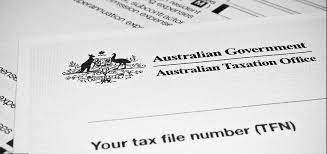
Tax file number.
You need to provide your tax file number to DVA. If you do not have a tax file number and are not eligible for an exemption you will need to apply for a tax file number through the Australian Taxation Office.
Pension Supplement & Allowances
There are a number of allowances payable to eligible pensioners:
-
Pension supplement — payable to all service pensioners, to help with the cost of prescriptions, rates, telephone and internet connections, energy, water and sewerage;
-
Rent assistance — payable to service pensioners who pay private rent for their accommodation, subject to minimum rent limits; and
-
Remote area allowance — payable to service pensioners who live in designated remote areas of Australia.
| *Note: |
DVA does not pay Family Tax Benefit. If you have dependent children you should contact the Family Assistance Office for any enquires about the payment of Family Tax Benefit. |
What happens when my claim is decided?
If you are a veteran, DVA will determine your qualifying service and other eligibility. If you and/or your partner are eligible, DVA will work out how much service pension you will be receiving, depending on your income and assets. When a decision has been made you will be notified by letter. This will include the date of grant and amount of service pension you will receive. You will also be notified of your obligations as a service pensioner. Your Pensioner Concession Card will be issued at the same time.
DVA will also tell you if you are eligible for a Veteran Gold Card for treatment. If you are eligible, the Gold Veteran Card will be posted separately 4–6 weeks later.
What if I am not happy with the decision?
If your claim for a service pension is not approved, or you are not happy with the rate of the service pension, you have the right to ask that we review the decision. You may apply to have the decision reviewed by a Review Officer. If you decide to apply for a review, you must do so within 3 months of receiving the letter notifying you of our decision. Your request for a review must set out in writing your reasons for seeking the review. You may also apply for a review through DVA online services or MyAccount.
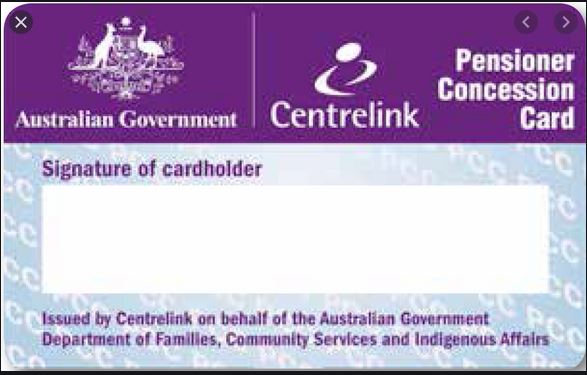
If you are dissatisfied with any aspect of the Review Officer’s decision, you may apply in writing to the Administrative Appeals Tribunal for a review of that decision. Your application should set out the reasons for your appeal and should be lodged with the Tribunal within 3 months of the date you receive the Review Officer’s decision.
Pensioner Concession Card
All service pensioners receive a Pensioner Concession Card. This card entitles pensioners to a range of Australian Government, State and local government benefits and concessions. These concessions vary from State to State and are determined by the authorities providing the concessions. See HERE.
| *Note: |
If a person is participating in the Pension Loans Scheme to obtain a substitute for the pension and is not otherwise entitled to a rate of pension, they are not entitled to the additional benefits associated with receipt of a pension such as a Pensioner Concession Card. |
Health care
DVA issues one of three health cards to eligible veterans and war widows and widowers, providing health care at the expense of the Department:
-
The Gold Veteran Card — treatment and health services for all conditions;
-
The Veteran White Card — treatment and health services for specific conditions only; and
-
The Orange Veteran Card — pharmaceutical benefits for eligible Commonwealth and allied veterans and mariners.
Veterans who served with the Australian Defence Forces may be eligible for the Gold Veteran Card when granted the service pension if they:
-
receive service pension only and have income and assets within certain treatment benefit limits; or
-
receive any amount of service pension plus a disability pension of 50% or more of the general rate ; or
-
are permanently blind; or
-
have an impairment from one or more service related injuries or diseases that constitutes at least 30 impairment points under MRCA.
Some veterans are eligible for the Gold Veteran Card regardless of any service pension granted. Partners are not eligible for health care at the expense of the Department.
Is my service pension taxable?
Most service pensions are considered income for taxation purposes and are therefore taxable, however, a service pension granted on the grounds of invalidity is not a taxable pension until the person reaches social security age pension age. The partner service pension, received by the partner of an invalidity service pensioner, is also non-taxable until the veteran or the partner reaches age pension age. Partner service pension paid to a former partner is taxable.
If your pension is taxable, you will receive a Payment Summary (previously called a group certificate) from DVA at the end of each financial year. Generally speaking, if the service pension is the only income you receive, you will not have to lodge a tax return.
The following are not taxable:
-
pension supplement (except for the basic amount);
-
veterans supplement;
-
service pension allowances;
-
disability pension and allowances; and
-
war widow(er)’s pension.
Your obligations
As a service pensioner you have a responsibility to keep us informed of changes that may affect the amount of pension you receive. These responsibilities are described in our letters to you as ‘obligations’.
In order to meet your obligations, you need to tell DVA within 14 days (28 days if you live overseas or receive remote area allowance) if:
-
your residential situation changes;
-
your relationship status changes;
-
you receive the maximum rate pension and your income exceeds the ordinary income free area and/or your assets exceed the assets value limit;
-
you receive a reduced rate pension and your income and/or assets exceed the limits stated in our most recent letter to you about your service pension;
-
you move or travel overseas; or
-
there is any other change that would affect the rate of your service pension.
Fulfilling your obligations within the specified time period assists us in maintaining your correct rate of service pension.
Can I apply for an increase in my service pension?
Yes. If you receive a reduced rate of pension, you may apply for an increase in your rate of pension any time there is a change in your circumstances. You can do this by contacting us by phone, in writing, or in person. Please note that the earliest date your pension can be increased from is the date that you notify the Department of the change in your circumstances.
Financial information
We can provide information on how your particular financial circumstances, or future financial decisions, might affect your service pension. To arrange an appointment contact DVA.
Centrelink Financial Information Service

Centrelink runs a dedicated Financial Information Service (FIS) which is also free to DVA pensioners. This service provides confidential independent information about financial investments - for example, what is available, analysis of investment products, taxation implications and general information on financial planning. FIS Officers provide information to people over the telephone, at personal interviews, or through financial seminars. They do not recommend any particular type(s) of investment, prepare financial plans or give financial advice.
For more information you can call Centrelink FIS on 132 300.
Arranging your affairs
It is advisable to keep all your important papers, such as wills, birth certificates, and mortgage papers, in a safe place known to family and friends. A folder containing information to assist you in arranging your affairs, called Planning Ahead — A Guide to Putting Your Affairs in Order, is available from DVA, or ex-service organisations such as the R&SL or Legacy. You can download a copy from HERE.
Freedom of information
Under the Freedom of Information Act 1982 you may seek access to information about yourself. This means that you can look at your personal files held by DVA and ask for copies of documents. You need to apply in writing and there is an application fee of $30.00, however, the fee does not apply if the documents you need relate to claims for, or increases in, your pension.
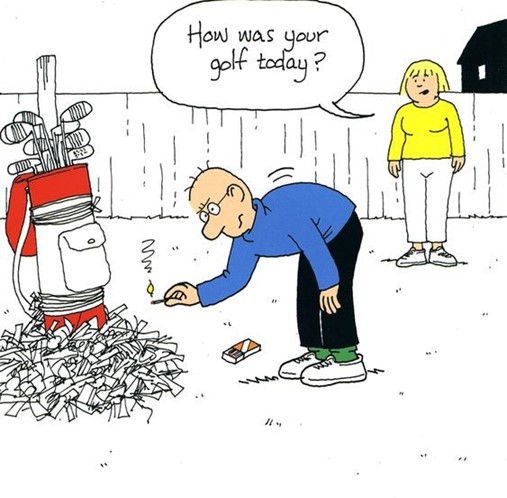
|
||
Back Go to page: 1 2 3 4 5 6 7 8 9 10 11 12 13 14 15 16 17 18 19 20 Forward
